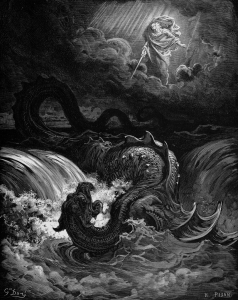From: Preliminaries of the Farsees: “Ced’a-meon League Recognition of Rights” of contextual relevance to “Declaration of War against the Ri’cilian Coalition”
I. Ced’a-meon League Recognition of Rights
Establishing
No matter place or culture, human nature is remarkably similar.
Man, on the whole, is more disposed to suffer, while evils are sufferable, than to abolish the forms to which they are accustomed.
Laws codify revelation of that self-evident, in harmony with natural order. Rules of Law that protect selfish or select interests sow disorder by infringing on natural rights and are means of oppression.
A government of the people is one beholden to its citizens, when citizens are beholden to the government it is an authoritative entity, dictating rights not protecting them. Any government that is not local, by definition, is an authoritative entity, dictating rights not protecting them.
Natural Order
These truths are self-evident, that all are created equal, endowed with rights to life, pursuit of freedom, and liberty.
1. There are no other laws other than natural law.
2. All have right to throw off and oppose any who would shackle and oppress.
3. Take not revolution in vain, make just your cause.
4. If you would govern, reflect on and abide in natural law as it relates to self and others.
5. If you would be governed, reflect on government, its price, versus freedoms given and those taken.
6. Do not kill.
7. Do not take nor covet what is not yours.
8. Recognize the rights of others as thus explained.
9. Protect those rights collectively conforming, to these principles.
10. Bear witness to truth.
Declaration
One needs no other cause to declaration of separation from that which opposes the Laws of Nature and of Nature’s God.
II. Ced’a-meon League’s Declaration of War against the Ri’cilian Coalition
Whenever any form of Government becomes destructive of the natural order as codified in the Declaration of Rights, it is the right of the threatened and oppressed to oppose said despotism. It is the right of those threatened and oppressed to lay a foundation on such principles and organize means in such form, as to them shall seem most likely to effect their safety, freedom and liberty.
Wherein the Ri’cilian Coalition and the Ced’a-meon League having deposed the Zi’anian Empire, the League has taken the mantel of protectorate of its member states. The Coalition, under guise of democracy, has repeatedly demonstrated its intent to replace by force and coercion the Zi’anian Empire, as hegemonic despot of the Phateon System.
On numerous occasions the League has broached the “Charters of the Alliance” as retained in “The Dissolution Treaty” and further have shown disregard for the treaties stipulations on Planetary Law. See “Appendix 1: Grievances” to this declaration for a complete listing of explicit Treaty violations.
Most grievous, having directly involved itself in the War of Unification on Lis’inth on behalf of Peleios against League State Elean, the Coalition has demonstrated its greatest disregard for the “Charters of the Alliance” as retained in “The Dissolution Treaty” and threaten the existence of the League itself by having:
- Directly intervened in the Battle of Paleo Bay on behalf of Peleios against Elean, a League State.
- Encroached on Planetary Law with one of its Battle Fleets when intervening in the Battle of Paleo Bay.
- Directly threatened the way of life and existence of the League and her individual states by disregarding the expressed concerns of the League as outlined in the “Lis’inthian Accords”.
The Ced’a-meon League, consisting of Ced’a-meon Proper, States of Arcania, and Lis’inth Elania, hereby declare the dissolution of the “Lis’inthian Accords” and further absolve themselves from the “Charters of the Alliance” as retained in “The Dissolution Treaty.”
The Ced’a-meon League and individual charter states declare war on E’ricle and any state in alliance with E’ricle in this matter.



